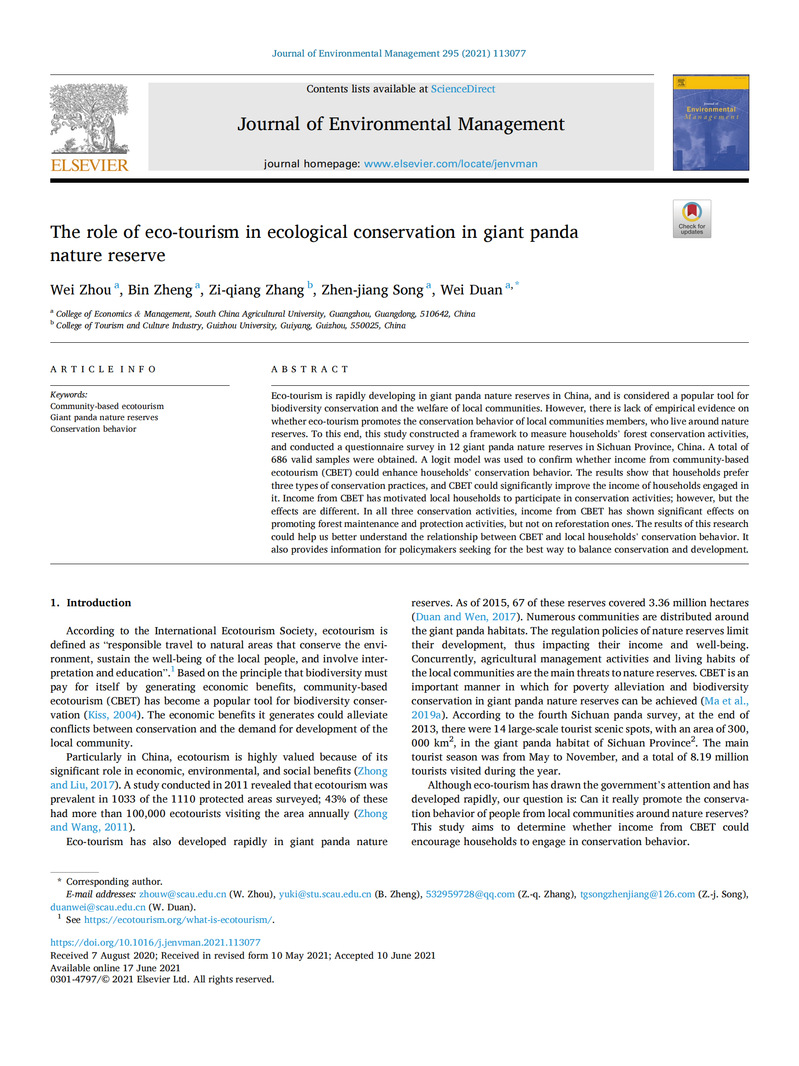期 刊: 《Journal of Environmental Management》
出版时间: OCT 2021 卷: 295
论文地址: https://www.webofscience.com/wos/alldb/full-record/WOS:000681112900002
摘 要
Eco-tourism is rapidly developing in giant panda nature reserves in China, and is considered a popular tool for biodiversity conservation and the welfare of local communities. However, there is lack of empirical evidence on whether eco-tourism promotes the conservation behavior of local communities members, who live around nature reserves. To this end, this study constructed a framework to measure households' forest conservation activities, and conducted a questionnaire survey in 12 giant panda nature reserves in Sichuan Province, China. A total of 686 valid samples were obtained. A logit model was used to confirm whether income from community-based ecotourism (CBET) could enhance households' conservation behavior. The results show that households prefer three types of conservation practices, and CBET could significantly improve the income of households engaged in it. Income from CBET has motivated local households to participate in conservation activities; however, but the effects are different. In all three conservation activities, income from CBET has shown significant effects on promoting forest maintenance and protection activities, but not on reforestation ones. The results of this research could help us better understand the relationship between CBET and local households' conservation behavior. It also provides information for policymakers seeking for the best way to balance conservation and development.
关键词 Community-based ecotourism; Giant panda nature reserves; Conservation behavior

基金资助:
National Natural Science Fund of China-Major International (Regional) Joint Research Project under Grant 71761147003, Natural Science Fund of China under Grant 72003069, 71373024, Innovation Project of Department of Education of Guang-dong Province, China under Grant 2020WTSCX008.
责任编辑:董晓玲
审 定:黄 松